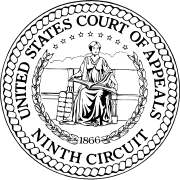Galoob v. Nintendo
| Lewis Galoob Toys, Inc. v. Nintendo of America, Inc. | |
|---|---|
 |
|
| Court | United States Court of Appeals for the Ninth Circuit |
| Full case name | Lewis Galoob Toys, Inc. v. Nintendo of America, Inc. |
| Decided | May 21, 1992 |
| Citation(s) | 964 F.2d 965 |
| Case history | |
| Prior action(s) | 780 F. Supp. 1283 (N.D. Cal. 1991) (granting judgment for Galoob following two-week bench trial) |
| Subsequent action(s) | cert. denied, 507 U.S. 985, 113 S. Ct. 1582, 123 L. Ed. 2d 149 (1993) |
| Case opinions | |
| manufacturer of product that allowed users to alter codes transmitted between video gaming console and game cartridge did not infringe console manufacturer’s exclusive right, under federal copyright law, to create derivative works | |
| Court membership | |
| Judge(s) sitting | Jerome Farris, Pamela Ann Rymer, and David V. Kenyon |
Lewis Galoob Toys, Inc. v. Nintendo of America, Inc. (Ninth Circuit Court of Appeals, 1992) was a court case which established the rights of users to modify copyrighted works for their own use. The case revolved around whether or not the Game Genie device which could modify video games in real time constituted creating a derivative work.
Under license from UK company Codemasters, Galoob manufactured an add-on product for the Nintendo Entertainment System (NES) called Game Genie, which allowed users to modify video games by entering in certain codes; for example, a code might make the player's character invincible by negating the programming that updates the character's health amount.
Nintendo, which sold a video game system and video games that could be modified by Game Genie, sued Galoob for copyright infringement, alleging that modifying a game with the Game Genie created a derivative work, violating Nintendo's copyright in their video games.
The court battle began in May 1990, when Galoob filed a complaint against Nintendo in U.S. District Court, seeking a declaratory judgment that the Game Genie did not violate Nintendo's copyrights, as well as an injunction preventing Nintendo from modifying their NES game system to make it incompatible with the Game Genie. Nintendo responded by filing a complaint against Galoob, seeking an injunction preventing Galoob from selling the Game Genie.
A similar court case (Midway Manufacturing Co. v. Artic International, Inc.) had previously been decided in favor of the copyright holder. Nintendo relied heavily on this case as precedent for its legal arguments.
...
Wikipedia
